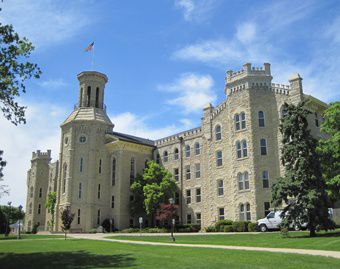The U.S. Supreme Court granted an injunction to Wheaton College on Thursday, temporarily exempting the Christian college from federal mandates to provide insurance coverage for procedures violating its beliefs. “The Court rightly recognized that Wheaton’s religious community should be allowed to practice its faith free from crushing government fines,” said Mark Rienzi, senior counsel for the Becket Fund for Religious Liberty, which is representing the college. Wheaton College president Dr. Philip Ryken on July 3 voiced gratitude to God that the Supreme Court “made a wise decision in protecting our religious liberty — at least until we have an opportunity to make our full case in court.” Wheaton College, based in the Chicago-area city of Wheaton, requires students, staff, and faculty to commit to a community covenant that affirms “the God-given worth of human beings, from conception to death.” The school challenged federal requirements that it provide employees with insurance coverage for contraceptive drugs and devices that can have abortifacient effects. The school also objected to requirements that it sign a form ordering a third party to provide the objectionable coverage, a putative religious accommodation federal regulators created in response to religious objections. “We continue to believe that a college community that affirms the sanctity of human life from conception to the grave should not be coerced by the government into facilitating the provision of abortion-inducing drugs,” Ryken said in response to the Supreme Court’s July 3 injunction. The injunction said that the college does not need to use the required form and that the federal government may not enforce the challenged provisions of the Affordable Care Act and its related regulations until appellate courts complete their review of the case, the Becket Fund said. Supreme Court justice Sonia Sotomayor strongly objected to the injunction in a dissent joined by justices Ruth Bader Ginsburg and Elena Kagan. She claimed the injunction contradicted the court’s reasoning in its June 30 Hobby Lobby decision, which cited the religious freedom accommodation for non-profits as proof the government had not sought the least burdensome means of mandating the coverage. On June 30 the Supreme Court ruled in favor of Hobby Lobby and Conestoga Wood Specialties, two closely-held for-profit corporations whose Christian owners objected to aspects of the mandate. However, the court has not issued a final ruling on the religious freedom objections from non-profits. The court has granted legal injunctions on behalf of several non-profits who object to the mandate, including EWTN Global Catholic Network, the Diocese of Cheyenne, and Catholic Charities of Wyoming. Employers who do not comply with the mandate face major financial fines.

